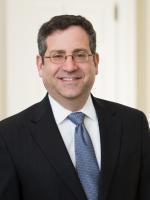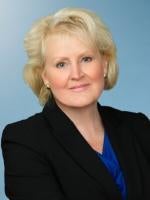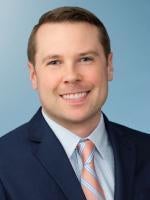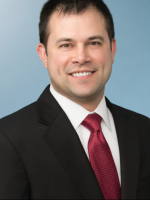On November 16, 2020, the Department of Health and Human Services, Office of Inspector General (OIG) published a Special Fraud Alert for Speaker Programs. The Special Fraud Alert "highlights some of the inherent fraud and abuse risks" related to company-sponsored speaker programs and provides examples of problematic speaker program characteristics that may render speaker program arrangements unlawful. Of principal concern is the Anti-Kickback Statute, which prohibits the payment of any renumeration to induce or reward the recommendation, ordering or referral of items or services payable by a federal health care program. The Special Fraud Alert also encourages pharmaceutical and device manufacturers to reconsider whether to resume in-person speaker programs once COVID-19 restrictions are lifted.
The OIG expressed "significant concerns" about companies' use of paid physician speakers based on the OIG's investigation and enforcement actions and declared that paid speaker programs are "often" used to induce referrals or use of the companies' products. Pharmaceutical and device companies have settled numerous False Claims Act cases involving speaker programs over the years for substantial sums, notably including a June 2020 $642 million settlement with the United States centered on allegations regarding the company’s speaker programs. In the Special Fraud Alert, the OIG noted drug and device companies paid nearly $2 billion to health care professionals (HCPs) for speaker-related services in the last three years.
The OIG stated it is "skeptical about the educational value" of speaker programs from its prior investigations and laid out multiple reasons to support its position. First, according to the OIG, speakers are often paid generous compensation to speak at programs under circumstances not conducive to learning — restaurants or entertainment or sports venues — or speak to attendees who have no legitimate reason to attend. Second, the OIG cites studies that concluded HCPs who receive remuneration from a company are more likely to prescribe or order that company’s products. Third, HCPs can access the same information presented at speaker programs from other sources such as online, the package insert, industry conferences, medical journals, etc. The OIG notes these other sources provide the same information without renumeration to HCPs, suggesting that "at least one purpose of remuneration associated with speaker programs is often to induce or reward referrals." As a result, the OIG encourages companies to think twice about in-person speaker programs. Specifically, the OIG recommends companies assess the need for in-person speaker programs given the anti-kickback risks and consider less risky alternatives to convey information to HCPs.
The OIG recognized the lawfulness of any remunerative arrangement depends on the facts, circumstances and intent of the parties. The OIG did provide a non-exhaustive list of "suspect characteristics" that potentially indicate a speaker program violates the Anti-Kickback Statute:
-
The company sponsors speaker programs where little or no substantive information is actually presented
-
Alcohol is available or a meal exceeding modest value is provided to the attendees of the program (the concern is heightened when the alcohol is free)
-
The program is held at a location that is not conducive to the exchange of educational information (e.g., restaurants or entertainment or sports venues)
-
The company sponsors a large number of programs on the same or substantially the same topic or product, especially in situations involving no recent substantive change in relevant information
-
There has been a significant period of time with no new medical or scientific information nor a new FDA-approved or cleared indication for the product
-
HCPs attend programs on the same or substantially the same topics more than once (as either a repeat attendee or as an attendee after being a speaker on the same or substantially the same topic)
-
Attendees include individuals who don’t have a legitimate business reason to attend the program, including, for example, friends, significant others, or family members of the speaker or HCP attendee; employees or medical professionals who are members of the speaker’s own medical practice; staff of facilities for which the speaker is a medical director; and other individuals with no use for the information
-
The company’s sales or marketing business units influence the selection of speakers or the company selects HCP speakers or attendees based on past or expected revenue that the speakers or attendees have or will generate by prescribing or ordering the company’s product(s) (e.g., a return on investment analysis is considered in identifying participants)
-
The company pays HCP speakers more than fair market value for the speaking service or pays compensation that takes into account the volume or value of past business generated or potential future business generated by the HCPs.
The OIG also warned HCPs paid to speak at programs and attendees who receive renumeration to attend, such as free food and drink, may be subject to "increased scrutiny."
Proactive Next Steps
Year-end activities are upon us and planning for 2021 — and even 2022 — is underway for many companies. The OIG’s alert comes at a time when most in-person speaker programs have been suspended or moved to an all-virtual format. Companies should take note of OIG’s alert and the multiple False Claims Act and Anti-Kickback Statute enforcement actions tied to speaker programs. Special Fraud Alerts are rare — only 5 in the last 20 years — and companies should read the clear tea leaves and expect further enforcement activity and related litigation in this area.
Allegations of dubious speaker programs often appear in product liability litigation and can quickly become a sideshow and resource drain. They are often one of the many means used to attack a company’s overall culture by supporting a “profit over patient safety” narrative. Poorly run speaker programs can also be easy targets for whistleblower complaints under the qui tam provisions of the False Claims Act leading to broader OIG and DOJ investigations. In addition to anti-kickback violations, speaker programs are ripe for allegations of inappropriate or off-label promotion, which can also lead to liability under the False Claims Act or prompt FDA investigations.
Simply put, there’s likely never been a better time to assess the parameters of speaker programs and the related policies on financial interactions with HCPs, such as evaluating the payment structure for speakers, how and why paid speakers are selected, program venues, and food and drink offered to attendees. Virtual speaker programs are not risk-free either, as additional questions exist regarding speaker payments. Specifically, should the payments be lower considering the lack of travel or whether the fair market value for speaker payments should increase as the virtual program can be available as an on-demand recording, viewable over and over. Only a proactive approach will help companies limit exposure to what can be costly investigations and litigation.
A number of resources exist to assess your programs:
-
Revised PhRMA Code on Interactions with Health Care Professionals
-
OIG Compliance Program Guidance for Pharmaceutical Manufacturers
-
AdvaMed Code of Ethics On Interactions with U.S. Health Care Professionals
-
FDA Guidance for Presenting Risk Information in Prescription Drug and Medical Device Promotion







 />i
/>i
